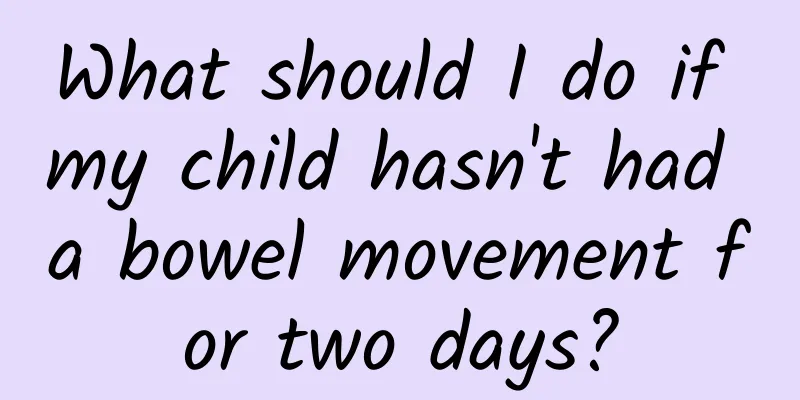What to do if you have excessive saliva after tooth extraction?

|
Tooth extraction is a common method of treating dental diseases in daily life. After tooth extraction, the oral cavity will be easily affected and the saliva secretion will be increased. This is a symptom caused by tooth extraction. There are many ways to relieve excessive saliva after tooth extraction. You can swallow the saliva to achieve the repair effect, or it can slowly repair itself and the saliva will slowly return to normal. What to do if you have excessive saliva after tooth extraction? This is the body's self-repair. Be sure to swallow all the saliva produced and do not spit it out, otherwise it will affect the recovery of the wound. 6 things to keep in mind after tooth extraction: 1. The cotton ball or gauze bitten in the mouth must be spit out after 40 minutes. After spitting it out, you can eat some ice cream, drink ice water or apply ice compress locally. 2. Do not lick the wound with your tongue after tooth extraction, do not brush your teeth or rinse your mouth within 24 hours, and pay attention to protecting the wound when brushing your teeth the next day. 3. You can eat soft or liquid food on the day of tooth extraction. Do not chew with the affected side and do not eat irritating food. Generally, the wound will heal 7 days after tooth extraction before you can chew with the extracted side. 4. Talk less on the day of tooth extraction and try not to spit within 4 days, otherwise it will affect the healing of the wound and cause bleeding. 5. Quit smoking and drinking, and avoid strenuous exercise. 6. If the pain gradually worsens 2 to 3 days after tooth extraction, you need to return for a follow-up visit or contact your doctor in time. Post-Extraction Care The yarn ball should be spit out after chewing it for half an hour After tooth extraction, the doctor will place a gauze ball above the extraction socket for the patient to bite tightly to apply pressure to stop bleeding. Generally, patients without blood diseases can stop bleeding by biting a gauze ball for half an hour in a quiet state. If you engage in strenuous exercise such as cycling or climbing stairs, the time for spitting out the yarn ball should be appropriately extended. Patients with hypertension should also extend the time appropriately. However, the gauze ball should not be bitten for too long, as the oral cavity is a bacterial environment. If the gauze ball is not spit out for more than 5-6 hours or half a day, it will easily become contaminated and eventually cause wound infection. Don't lick the wound after tooth extraction Good blood clots are an important condition for normal healing of tooth extraction wounds and avoiding infection. When the gauze ball is spit out, the bleeding in the alveolar socket has stopped and a blood clot has formed. However, if the blood clot is washed away by saliva or water, it will break up again, just like ice melting, eventually causing the blood clot to fall off and re-bleeding. Therefore, do not rinse your mouth or brush your teeth within 24 hours after tooth extraction, do not rinse your mouth vigorously when drinking water, and do not lick the wound frequently with your tongue. Although the bleeding has stopped, talking and chewing can cause blood clots to fall off and cause rebleeding, so try to talk as little as possible. Don't spit all the time. There will be blood in your saliva for the first three days after tooth extraction. This is normal. Don't panic or try to spit it all out. Continuous spitting will only cause continuous bleeding and even blood clots to fall off. Once the blood clot falls off, it may cause inflammation and pain in the wound. In severe cases, it may cause dry socket, severe pain, and delayed healing of the tooth extraction wound. Therefore, it is important to protect the blood clot. If you bleed again after surgery, remember to bite the gauze ball Sometimes the bleeding has stopped after the gauze ball was spit out, but the socket may bleed again after exercise, talking, drinking water, etc. At this time, you can place the gauze ball above the extraction socket and bite it tightly to apply pressure to stop the bleeding, which usually works. If the bleeding cannot be stopped, go to the hospital immediately. |
<<: What is the reason for having saliva in your mouth when you sleep at midnight?
>>: What should I do if I can't vomit and only have saliva?
Recommend
Causes of general fatigue and lack of energy
Sometimes you feel tired and lack energy. This is...
Can chronic inflammation heal on its own?
Inflammation is a very common disease in our live...
How to make dried plums
Those of you who have plum trees at home and have...
Tips on how not to get angry
In life, we always encounter some unpleasant or un...
Pepper water for urticaria
Pepper water for urticaria Urticaria is a common ...
Can I sleep with a condom after medical abortion?
You are not allowed to have sex within one month ...
What to eat to quit smoking
Smoking is harmful to the body and has no benefit...
Why do I feel chest tightness, shortness of breath, and hiccups all the time?
Chest tightness and shortness of breath can make ...
Treatment of seborrheic dermatitis on scalp
I believe most people know about dermatitis, and ...
Can Huoxiang Zhengqi Water reduce fever?
Huoxiang Zhengqi Water contains a certain amount ...
Acupuncture for the treatment of stroke sequelae
Although stroke patients have undergone treatment...
Why do people have nightmares? The main factors are these
I believe that almost everyone has had nightmares...
Can a tooth that has been filled be restored again?
Generally speaking, a filled tooth can be filled ...
Normal cervical curvature
Our cervical spine has a certain degree of curvat...
What medicine can cure mole sores quickly?
Hemorrhoid medicine is a common drug for treating...









